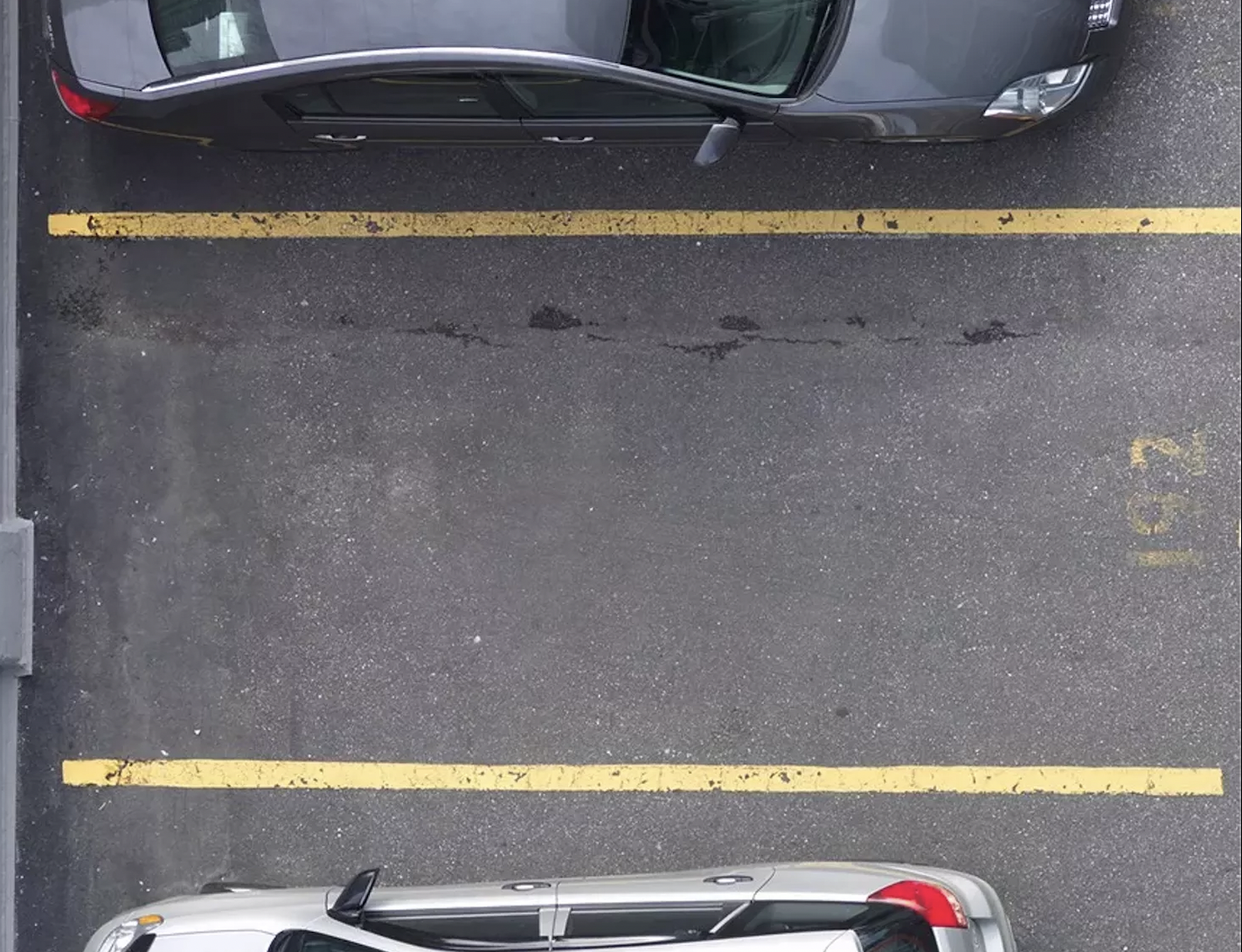
Josh Berendes/Unsplash

Audio By Carbonatix
Denver is one step closer to becoming the second Colorado city to abolish minimum parking requirements.
Under the city’s proposal, developers in Denver would be able to choose whether to include new parking spaces in construction projects, and existing businesses and housing complexes would be able to eliminate current parking. If approved, the change would take effect on August 11.
The trio of bills to remove parking minimums from Denver’s zoning code passed a preliminary City Council vote on Monday, June 30. The final council vote and public hearing are scheduled for August 4.
Right now, many new developments in Denver have to include a certain number of parking spots: one spot per dwelling unit for market-rate apartments, two spots per 1,000 square feet for retail and office space, or four spots per 1,000 square feet for restaurants and bars. Those requirements don’t apply to single-family homes or some downtown neighborhoods.
“It’s way too blunt and arbitrary and one-size-fits-all,” said Councilwoman Sarah Parady, one of the sponsors behind the proposal, during a meeting on May 20. “The lack of flexibility can be a real problem because they have no ability to go up and down, even by ten spaces. Sometimes, for a particular building, that can really kick the cost into problematic territory.”
Supporters say doing away with parking minimums will promote the development of more housing in Denver by reducing the costs of building and the time needed to review development applications. A parking space in a structured garage can add up to $50,000 to the cost of building a dwelling unit, according to city staff.
Opponents fear that removing parking minimums will force residents of new buildings to park on street sides, leading to crowded streets, increasing the costs of existing parking lots and garages, and making it more difficult for people to drive to Denver destinations.
Some councilmembers feel the state government is forcing them to make a change that will negatively impact Denver. City staffers said they decided to propose eliminating Denver’s parking minimums while analyzing the impact of implementing a new state law passed in May 2024. That state law, which took effect on June 30, prohibits cities from enforcing parking minimums for most new multifamily residential properties within a quarter mile of transit stops or stations.
“This is a massive overstep by our state government into local control,” said Councilwoman Amanda Sawyer during a June 16 meeting. “I think that the City of Denver should be joining several other Front Range cities in a lawsuit against the state.”
Denver’s proposal goes beyond the state law by removing all parking minimums instead of just those for multifamily residential developments near transit routes. Only one other Colorado city has abolished all parking minimums: Longmont in May 2024. Boulder is currently considering its own proposal, which is expected to pass in late July.

The final council vote and public hearing are scheduled for August 4.
Getty Images
Parady argued that Denver’s rigid parking minimums result in underused parking lots, and that developers should be able to choose how much parking they need instead of the government.
Councilwoman Flor Alvidrez, another sponsor, said the issue was brought to her attention by businesses on South Broadway upset that they have to sacrifice patio space in order to provide unneeded parking spaces. Parady pointed to a 2020 RTD study that found 40 percent of parking spaces were unused at residential properties near RTD stations, and 50 percent went unused at income-restricted properties.
“We’re forcing this parking to be built, but then it’s not being utilized,” Parady said. “It’s not as though you’re going to suddenly have a ton of buildings with zero parking spots. Most places are going to include parking. Are they going to maybe include ten less spots if it makes it easier to lay out? Possibly.”
The city provided various examples of developers adding more parking than legally required, like an office building at 1901 Lawrence Street that had no parking requirements but provided 633 spaces, or an apartment complex at 600 Park Avenue that provided 217 spaces.
“In Golden Triangle, we got rid of parking requirements in June of 2022. We’ve had a whole lot of development in Golden Triangle since June of 2022, and all of them have parking spaces,” said Councilman Chris Hinds, another sponsor of the proposal, during a May 20 meeting. “[For those] who have a concern that we would never build a parking space again in our city if we got rid of minimum parking requirements, we have example after example after example.”
However, for some backers, the goal of the proposal is to reduce car dependency. They hope fewer parking spots would encourage Denver residents to use public transit and reduce greenhouse gas emissions that come from driving.
According to Sawyer, that is not a realistic goal, given the current state of the city’s public transit system.
“Until RTD can pull it together and provide us reliable, safe transportation that can get us where we need to go, this change in the law does not make any sense and will do absolutely nothing except inconvenience the residents of Denver,” Sawyer said. “We are passing a law for performative reasons and not because it’s actually going to make a difference.”
The proposal passed the June 30 council vote 9-1, with three members absent, including Sawyer. The plan is backed by Denver Mayor Mike Johnston, the Department of Community Planning & Development, the Department of Transportation & Infrastructure, and the Office of Climate Action, Sustainability & Resiliency.
Only Councilman Kevin Flynn voted against the plan. Councilmembers did not discuss their votes at the time, but Flynn previously said he agreed with Sawyer’s objections during a June 16 vote to postpone consideration of the proposal to June 30.
“If I could postpone it to the next century, I would do that,” Flynn said.